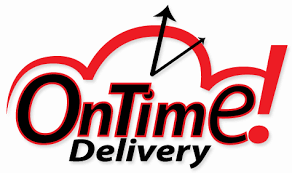Introduction
Why Choosing the Right Industrial Dehumidifier Supplier Matters
When it comes to operating a warehouse, one of the most crucial aspects is maintaining a consistent and appropriate humidity level. Excess moisture in the air can damage stored goods, promote mold growth, and compromise the integrity of the building structure. Industrial dehumidifiers are an essential tool for controlling humidity levels and protecting your investment.
However, choosing the right supplier for your dehumidifier needs can make all the difference. A reliable and experienced supplier can ensure that you get the best product for your warehouse and provide the necessary support throughout the entire process. This section will explain in detail why selecting the right industrial dehumidifier supplier matters for a successful warehouse project.
What This Guide Will Cover

In this guide, we will cover everything you need to know about choosing the right industrial dehumidifier supplier for your warehouse project.
From assessing a supplier’s reputation and experience to evaluating product quality and pricing, we’ll guide you through the essential factors to consider.
We’ll also provide practical tips and real-life examples to help you make an informed decision. So if you’re looking to invest in industrial dehumidifiers for your warehouse, this guide is the perfect starting point.
Assessing the Supplier’s Reputation

Importance of evaluating supplier’s reputation
When it comes to choosing the right industrial dehumidifier supplier for your warehouse project, evaluating the supplier’s reputation in the market is crucial.
A supplier with a good reputation is more likely to provide high-quality products, reliable service, and support.
To evaluate a supplier’s reputation, you can check their online reviews, ratings, and testimonials from previous customers.
You can also look into their history in the industry, their track record of successful projects, and their partnerships with other reputable companies.
All of these factors can give you an idea of the supplier’s reputation and their ability to meet your project needs.
How to assess the supplier’s reputation
When assessing a supplier’s reputation, there are several steps you can take to ensure that they are trustworthy and reliable.
- Check online reviews and ratings on websites such as Google, Yelp, and industry-specific forums.
- Ask for references from the supplier and reach out to previous customers to hear about their experiences.
- Research the supplier’s history and background to learn about their track record in the industry. Check if the supplier has any certifications or awards that demonstrate their expertise and quality standards.
- Look for any negative news or press about the supplier, such as lawsuits or recalls, to identify potential red flags.
- Evaluate the supplier’s communication and responsiveness to see if they are reliable and professional.
By following these steps, you can gain a better understanding of a supplier’s reputation and make an informed decision when choosing a supplier for your industrial dehumidifier needs.
Evaluating the Supplier’s Experience
Importance of assessing supplier’s experience
When it comes to choosing an industrial dehumidifier supplier for your warehouse project, it is important to assess the supplier’s experience.
A supplier with a good track record of delivering high-quality dehumidifiers to warehouses is more likely to provide you with reliable and efficient solutions.
They will be familiar with the common challenges and requirements of warehouse projects, which will allow them to provide more tailored and effective solutions.
In contrast, a supplier with little experience in this area may not have the necessary expertise to deliver the best results for your project.
What to Look for in a Supplier’s Experience
When evaluating a supplier’s experience, there are several key factors to consider:
- Length of time in the industry: A supplier that has been in business for a long time may have more experience and knowledge about the industry and its challenges.
- Types of projects worked on: Look for a supplier who has experience working on similar projects to yours, whether that be in terms of industry or project scope.
- Customer Testimonials: Reviews and testimonials from past customers can provide valuable insight into a supplier’s experience and expertise.
- Quality of past work: Look for examples of the supplier’s past work to assess the quality and attention to detail they put into their projects.
- Certifications and awards: Certifications and awards can be an indicator of a supplier’s level of expertise and experience in the industry.
By considering these factors when evaluating a supplier’s experience, you can make a more informed decision about whether they are the right fit for your project.
Examples of suppliers with good experience
In this section, we will provide examples of industrial dehumidifier suppliers with a good track record of experience.
It’s important to note that just because a supplier has a good track record of experience, it does not mean they will be the right fit for every warehouse project. It’s important to assess the specific needs of each project and evaluate if the supplier’s experience aligns with those needs.
After-Sales Service and Support

Importance of considering after-sales service and support
When choosing an industrial dehumidifier supplier for your warehouse project, it’s essential to consider their after-sales service and support. This is because, during the installation, maintenance, and repair of the dehumidifiers, you may encounter some problems that require professional assistance. A supplier with reliable after-sales service and support can save you time, money, and headaches. In addition, good after-sales service can also help you extend the lifespan of your dehumidifiers, ensuring that they continue to function at optimal levels for a longer period.
What to look for in a supplier’s after-sales service and support
When evaluating a supplier’s after-sales service and support, there are several factors to consider:
Response Time: A good supplier should have a fast response time and be available to answer any questions or address any issues that may arise.
Technical Support: A supplier should have knowledgeable technical staff who can provide technical support and troubleshoot any issues.
Warranty and Maintenance: A good supplier should provide a warranty and maintenance plan that covers any repairs or replacements needed during the product’s lifetime.
Spare Parts Availability: The supplier should have readily available spare parts in case of any equipment breakdowns.
Training and Installation: The supplier should provide comprehensive training and installation services to ensure that the product is installed and used correctly.
By evaluating these factors, you can ensure that you choose a supplier that provides high-quality after-sales service and support.
Product Quality and Technology
Importance of examining product quality and technology
When choosing an industrial dehumidifier supplier for your warehouse project, examining the product quality and technology is crucial. This is because the quality of the dehumidifier will determine how effective it is in removing moisture from the air, and the technology used will impact its efficiency and energy consumption. Investing in a high-quality dehumidifier with advanced technology can help you achieve optimal results and reduce energy costs in the long run. Therefore, it is important to carefully consider the quality and technology of the product offered by the supplier.
What to look for in a supplier’s product quality and technology
When evaluating a supplier’s product quality and technology, there are several factors to consider.
- Efficient and effective dehumidification technology
- High-quality materials and components used in the dehumidifier
- Durability and reliability of the product
- Customizable features to meet specific warehouse needs
- Energy efficiency and eco-friendliness of the dehumidifier
- Compliance with industry standards and regulations
- Advanced features such as remote control and monitoring capabilities
- Availability of technical support and maintenance services
Ultimately, you want to choose a supplier that offers high-quality dehumidifiers with advanced technology and features that meet your specific needs and requirements.
Pricing and Payment Terms
Importance of considering pricing and payment terms
When choosing an industrial dehumidifier supplier, it’s crucial to consider pricing and payment terms as they can significantly affect the overall project budget. The supplier’s pricing and payment terms can also affect the flexibility of the project timeline and the equipment quality. It’s essential to find a supplier that offers fair pricing and payment terms that are in line with your budget and project requirements. Choosing the wrong supplier with unfavorable pricing and payment terms could lead to unexpected expenses, delays, and even project failure.
What to look for in a supplier’s pricing and payment terms
When considering pricing and payment terms, there are several factors to look for in a supplier:
- Transparency: A good supplier should be transparent about their pricing and provide a clear breakdown of costs.
- Competitive pricing: Compare the prices of different suppliers to ensure that you are getting a competitive price for the dehumidifier you need.
- Payment terms: Consider the payment terms offered by the supplier, such as the deposit required, payment schedule, and methods of payment.
- Hidden costs: Make sure to clarify if there are any hidden costs, such as shipping or handling fees, that may not be immediately apparent.
- Discounts and promotions: Look for suppliers who offer discounts or promotions, especially if you plan to make a large purchase.
- Warranty and return policy: Review the supplier’s warranty and return policy to ensure that you are protected in case the product is faulty or does not meet your needs.
Certifications and Quality Standards
Importance of knowing the supplier’s certifications and quality standards
Knowing the certifications and quality standards of a supplier is important because it provides assurance that the products you are purchasing meet certain safety and quality requirements. Certifications and standards can also indicate the supplier’s commitment to continuous improvement and adherence to industry best practices. By ensuring that the supplier has the appropriate certifications and quality standards, you can reduce the risk of product failure, safety hazards, and legal liability.
What to look for in a supplier’s certifications and quality standards
When evaluating a supplier’s certifications and quality standards, it’s important to look for the following:
Industry-specific certifications: Depending on the industry, there may be specific certifications that a supplier needs to have in order to meet regulatory requirements and industry standards.
ISO certifications: ISO certifications, such as ISO 9001 for quality management and ISO 14001 for environmental management, demonstrate that the supplier has met internationally recognized standards for quality and environmental management.
Compliance with relevant laws and regulations: The supplier should be in compliance with all relevant laws and regulations in their industry and location.
Supplier’s own quality standards: Some suppliers may have their own internal quality standards that they adhere to, which can provide an additional level of assurance regarding the quality of their products.
Record of quality incidents: It’s important to research the supplier’s record of quality incidents or product recalls, and evaluate how they handled these situations. A supplier with a history of consistent quality issues should be approached with caution.
Transparency and willingness to share information: A supplier that is transparent about their quality standards and certifications, and willing to provide information and documentation upon request, is more likely to be reliable and trustworthy.
Customer References

Importance of getting customer references from the supplier
Getting customer references from the supplier can provide valuable insights into the supplier’s performance and reliability. By speaking with current or past customers, you can get an idea of what it’s like to work with the supplier and whether they are capable of meeting your needs. Customer references can also help you identify any potential issues or risks associated with working with the supplier. Ultimately, customer references can help you make a more informed decision and feel more confident about your supplier selection.
How to request and evaluate customer references
When evaluating potential suppliers, it is important to request and evaluate customer references. Here are some steps to follow:
- Ask the supplier for a list of references: Request a list of customers that the supplier has worked with in the past.
- Contact the references: Reach out to the customers on the list and ask them about their experience working with the supplier. Ask about their level of satisfaction with the supplier’s products, services, and support.
- Ask specific questions: Ask the references specific questions about the supplier’s performance, such as delivery times, responsiveness, and quality of products.
- Look for patterns: Look for patterns in the feedback you receive from the references. If several customers express similar concerns or praise the supplier for the same qualities, take note of these patterns.
- Consider the source: Consider the type of customer giving the reference. A reference from a customer in a similar industry or with similar needs as your own may be more relevant than a reference from a customer with different needs.
- Use the information to make an informed decision: Use the information you gather from the customer references to make an informed decision about whether the supplier is a good fit for your needs.
By following these steps, you can gain valuable insights into a supplier’s performance and make a more informed decision about whether to work with them.
Communication Process

Importance of having a clear and transparent communication process
Having a clear and transparent communication process with a supplier is crucial for a successful business relationship. Clear communication helps to avoid misunderstandings, delays, and errors that could potentially impact the quality, cost, and delivery of the products or services.
A transparent communication process allows for honest and open dialogue between the supplier and the customer, enabling both parties to address any issues or concerns promptly. It also facilitates better decision-making by providing accurate and timely information.
Moreover, a clear communication process can help build trust between the supplier and the customer, which is essential for a long-term and mutually beneficial partnership. Effective communication can also lead to improvements in product design, production processes, and customer service, resulting in increased customer satisfaction and loyalty.
What to look for in a supplier’s communication price
When evaluating a supplier’s communication process, here are some key factors to consider:
- Responsiveness: How quickly does the supplier respond to your inquiries? Do they have clear response time expectations set?
- Clarity: Is the supplier’s communication clear and concise? Do they provide all necessary information in a timely manner?
- Availability: Are they available for communication during your business hours? Do they have a designated contact person or team for your account?
- Transparency: Does the supplier provide transparent and open communication, including any potential issues or delays?
- Language and cultural compatibility: Does the supplier communicate effectively in your language? Do they have an understanding of your business culture and practices?
Overall, a supplier with a clear and transparent communication process can help establish a strong business relationship and prevent misunderstandings or delays in the future.
Delivery Time

Importance of knowing the supplier’s delivery time
Knowing the supplier’s delivery time is crucial for businesses to ensure that they can fulfill their own obligations to their customers on time. Delayed delivery can result in unhappy customers, loss of sales, and reputational damage. It is important to have a clear understanding of the supplier’s delivery times and their ability to meet the agreed-upon deadlines.
How to evaluate the supplier’s delivery time
Here are some factors to consider when evaluating a supplier’s delivery time:
- Lead time: This refers to the time it takes for the supplier to manufacture or source the product and have it ready for shipment. It’s important to have a clear understanding of the lead time to ensure that it fits within your desired timeline.
- Shipping time: This refers to the time it takes for the product to be transported from the supplier’s facility to your location. It’s important to consider the shipping method and distance to accurately evaluate the shipping time.
- Transit time: This refers to the time the product spends in transit, which includes any delays due to customs or other factors. It’s important to factor in transit time to ensure that the product arrives within the expected timeline.
- Order tracking: The ability to track the order and receive real-time updates on the status of the shipment can help identify any potential delays and allow for adjustments to be made.
- Communication: Good communication with the supplier regarding the delivery timeline is crucial to ensure that any potential delays or issues are addressed in a timely manner.
Overall, it’s important to have a clear understanding of the supplier’s delivery process and timeline to ensure that the product arrives within the expected timeframe.
Case Studies

Real-world examples of successful warehouse projects with industrial dehumidifiers
Industrial dehumidifiers play a crucial role in maintaining proper humidity levels in warehouses and other storage facilities. Here are a few real-world examples of successful warehouse projects that incorporated industrial dehumidifiers:
- Paper Box Factory Warehouse: A paper box factory in a humid climate struggled with moisture issues that affected the quality of their products. They installed an industrial dehumidifier in their warehouse to control the humidity levels and prevent moisture from damaging their raw materials and finished products. This resulted in a significant improvement in product quality and a decrease in waste and production costs.
- Tobacco Warehouse: A tobacco warehouse faced challenges with mold growth on their tobacco products due to high humidity levels. After installing an industrial dehumidifier, the humidity was controlled, and mold growth was eliminated, resulting in improved product quality and increased revenue for the company.
- Furniture Warehouse: A furniture warehouse in a humid climate experienced wood warping and damage due to excess moisture. By installing an industrial dehumidifier, the humidity was controlled, and the wood was protected from damage, resulting in improved product quality and reduced waste.
- Clothing Warehouse: A clothing warehouse in a humid climate had issues with mold growth on their clothing products. They installed an industrial dehumidifier, which controlled the humidity levels, and eliminated mold growth, resulting in improved product quality and increased customer satisfaction.
In each of these examples, industrial dehumidifiers played a critical role in ensuring the integrity of the stored products, reducing waste, and improving overall efficiency.
Analysis of the supplier’s role in the success of the project
The supplier’s role in the success of a project can be crucial. In the case of industrial dehumidifiers, the supplier is responsible for providing the appropriate equipment and ensuring it is installed correctly. They should also provide support throughout the project, from initial consultation to post-installation maintenance.
The supplier’s expertise in the field of industrial dehumidifiers is also important. They should be able to recommend the appropriate equipment for the specific needs of the warehouse and provide guidance on the optimal placement of the equipment to achieve the desired results.
In addition, the supplier’s level of customer service and responsiveness can impact the success of the project. A supplier who is responsive to inquiries and concerns can help to ensure that the project stays on track and any issues are addressed promptly.
Overall, the supplier’s role is essential in ensuring the success of an industrial dehumidifier project. They provide the necessary equipment, expertise, and support to achieve the desired outcome for the warehouse.
Conclusion
Recap
In summary, selecting the right industrial dehumidifier supplier is crucial for the success of any warehouse project. A reliable supplier will not only provide quality products but also offer excellent customer service, timely delivery, clear communication, and competitive pricing. It is essential to thoroughly evaluate potential suppliers based on their product quality, technology, pricing and payment terms, certifications and quality standards, customer references, communication processes, and delivery times. Real-world examples have shown the positive impact that the right supplier can have on the success of a warehouse project. Therefore, it is important to carefully consider and choose the supplier that best fits the specific needs and requirements of the project.
Call to Action
If you’re planning a warehouse project and need help choosing the right industrial dehumidifier supplier, contact our team at Hangzhou JoeAir. We have a wealth of experience in providing tailored solutions for various industries, and we’re confident that we can help you find the perfect industrial dehumidifier for your project. Don’t hesitate to get in touch and let us help you make your warehouse project a success.





